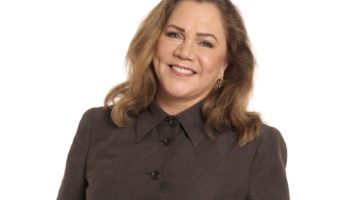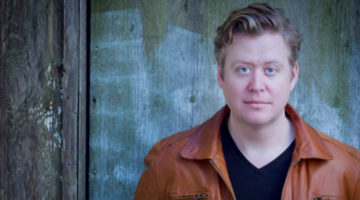Interview: Doug Block talks about 112 Weddings, love, and the future of marriage
Documentary filmmaker Doug Block has been shooting wedding videos on the side for most of his filmmaking career. Now, after shooting wedding videos for twenty-two years, Block has decided to revisit some of his subjects to form his latest film 112 Weddings. When the film had its world premier at Hot Docs, we sat down with Block to talk about the film, love, and the future of marriage.
Scene Creek: When did you get the idea to revisit the couples as a film?
Doug Block: Almost from the beginning. I was stunned at how amazing weddings were to shoot as a documentary filmmaker. The access that I had is what you die for when you make documentaries. You’re always struggling to be let in, and here they’re paying you well to do it. Not only that, but on the biggest day of their lives together as a couple. So to see two ordinary people go through that experience with just you as their fly-on-the-wall is quite amazing. I was stunned at what I sort of stumbled into agreeing to do my first video; then I wanted more and more. I also saw it as a really nice way to make some money on the side. It combined everything I like about making documentaries, with the pay aspect. Being in such close quarters with a couple that you don’t know, particularly on their wedding day, I couldn’t help but speculate how good they were as a couple. You know, how long will this last? Are they keepers? I think a lot of people do that when they go to a wedding, they sit there and judge. “They don’t look that in love.” or “Oh my god they’re all over each other!” while the cynics say, “That won’t last.” We’re always very nosey about other people’s marriages and other people’s relationships. I was always curious. From the beginning I thought I wanted to go back. Whether it was just finding two or three couples and spending a lot of time with them or hitting a lot of couples a little less deeply, which is what I opted for. I always thought it would be really interesting to do. I was just in no big hurry to do it because I thought the more time that went by, the better. I got busy with other films and then finally it seemed like the right time.
SC: Have any of the couples from the film seen it yet?
DB: They’ve all seen it. There’s no way I would ever show it publicly without them having seen it. We set up a private screening at HBO for just the couples. To the best of my knowledge they really loved it. They commiserated with each other; it was like a group therapy session afterwards. It was really gratifying, because I was very nervous. They were very candid, so the interviews are very revealing. Almost as much for what they don’t say for what they do. The body language and facial expressions, even the pauses after I ask a question are very revealing. There were clearly tensions in some of the relationships and you never know how anyone will react to that. I was very relieved that they were not only okay with it, but they actually felt really good about it and thought it was a great film.
SC: Was there anything in the film that any of the subjects felt uncomfortable about?
DB: If there was, they didn’t tell me. It’s hard for people to see themselves portrayed in a film. It was very delicate. They’re very vulnerable to me as an editor coming in and being very judgmental. Maybe getting cheap laughs at their expense or just making them look bad. We spent a lot of time trying to balance the need to make then scene work dramatically, but at the same time not overstepping our bounds in terms of really invading their privacy in a way that was disrespectful or took advantage of them. For instance, if I ask a question and they hesitate to answer, and some of these questions were not easy. To answer questions like “What makes for a good marriage?” and then, “Do you think you have a good marriage?” People don’t have fast, glib answers to those things. So if they hesitate for a certain period of time before answering and we cut before they answer and just hold the pause, it makes it look like they just cant answer the question. That can make them look ridiculous. It would get a laugh, but it would be a really cheap laugh at their expense. So that’s an example of the kind of thing that we avoided doing. We had many opportunities for very big laughs that we didn’t take because we just felt like it crossed the line. I knew there’d be a day where I showed them the film. It’s kind of a day of reckoning because you have to live with what you’ve done to people who’ve trusted you. It’s horrendous to abuse that trust. It’s a fundamental trust between a documentary filmmaker and their subject.
SC: What was it like seeing the couples again after being separated for so long?
DB: It was interesting to see what time does. Some people really aged and others didn’t. Which is always to see. Alexander makes a really good point in the end of the movie, saying you have to look at [marriage] as a sixty-year enterprise. They’re going to age and their looks will give out and their teeth will rot. Is this the person you want to look at when their physicality is gone? It’s such an interesting way of putting it. Time is a huge factor in relationships. The film is about marriage, but it’s also about long-term relationships, and so time is the critical element in these things. Part of why we get married is a physical attraction, so we have to deal with what happens if your partner starts losing their looks. How do you keep the romance alive when you start to lose the attraction to the person?
SC: Do you still plan on filming more wedding videos?
DB: I’d love to; my price has gone up though. I love shooting weddings though, I’m all for doing more. It’s really nice because the cameras have gotten lighter and better. It’s always been a nice way to make money on the side. The most I ever did one year was ten, and I’ve done as few as two or three They’re endlessly interesting to me. I never feel jaded or sick of them. I also love the couples. They’re hiring me because they want something that’s sort of a fly-on-the-wall kind of thing. Their sensibility is that they don’t want these pretentious videos, like the stupid music video weddings where their baby pictures dance around in little hearts to their favourite song. There are some really cheesy wedding videos out there and this is just pure vérité. Sometimes it was heartbreaking giving these tapes away to couples knowing that only twenty to thirty people would be seeing them, having been used to films that got out pretty widely.
SC: Something really interesting that the film addresses is that statistics today say that 50% of marriages fail. It makes us wonder if it’s really worth it to get married in the first place. Did making this film change your views on marriage?
DB: Well I don’t know if it changed my views on marriage, but what was interesting what came up was that I never expected it to take the turn it did in the editing where I looked at why we get married. All the issues the couples encountered would have happened whether they were living together or married. The things that tested them as a couple had nothing to do with being married or not, it just had to do with them being together as a couple. So that was what was unexpected to me. I never expected it to be a thing where I started questioning marriage. I’ve been married for a long time and it really made me think back on why it was so important for me to get married. So many young people today don’t even think about marriage. They’re not even thinking about it or it doesn’t seem relevant to them anymore. I wasn’t really trying to make a film about marriage per say. I mean I didn’t go into it with a preconceived notion about what I wanted to say about marriage. I just thought going back to these couples would present a really interesting mosaic look at people’s experience with marriage. Through them we’re bound to learn about relationships and marriage and love and what happens over time to it, why some stay together and others fall apart. Also what people go in expecting marriage will be for those who do get married and what it turns out to be. I thought they were fascinating questions to explore. What do you think movies are about? Most Hollywood movies are about relationships, most of them are love stories and most of them end on the wedding day, as if that solves everything. To me that was just the beginning of the story.
112 Weddings is now playing at the Bloor Hot Docs Cinema and will premier on HBO on June 16th.



